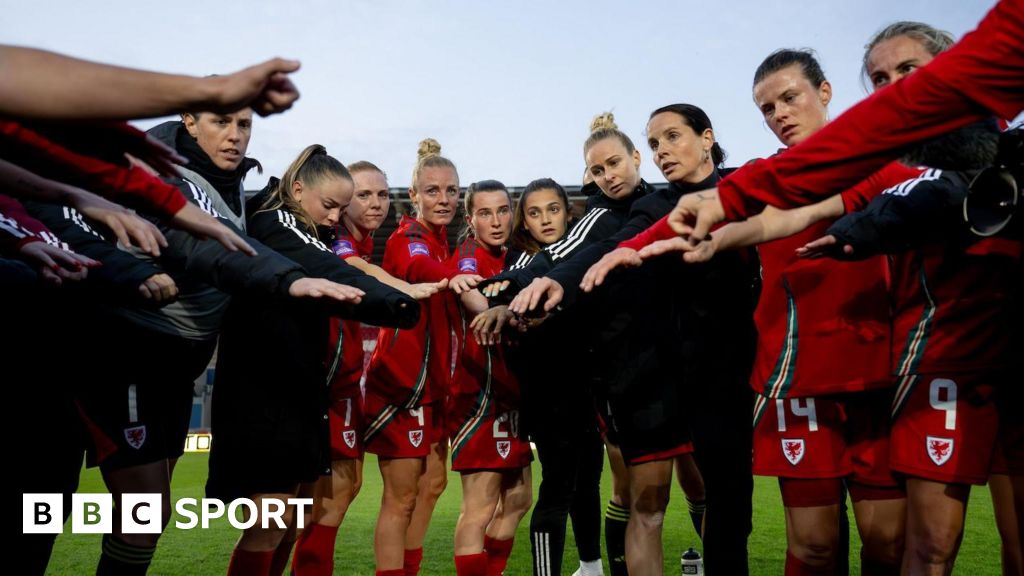That line for those gains would be much further than the players at the time would have hoped.
Starting with Euro 1995, Wales would compete in five UEFA qualifying campaigns, winning only two out of 32 matches.
Crowds were small, their managers were only part-time and facilities and equipment were not what you would expect for an international team.
“My first shirt was an XXXL men’s,” said Kath Morgan who made her debut for Wales in 1995.
“I was tiny, the heel [of the sock] came up to the top of my calf. [The shirt] was heavy, it was the old Umbro long sleeved style.”
Morgan said it took her several years before she fully realised why things happened that way.
“Wales men, I do understand, were not successful.
“I do understand success brings more revenue and because Wales weren’t successful the money would always go to the men and never to the women.
“And it was kind of, we’ve got you on board so be quiet.”
McAllister added, “We were getting a new generation of young players coming through.
“The likes of Jayne Ludlow for example, and they were playing for decent clubs, big clubs in some cases, so their expectations were higher.
“This was quite a tense period for the women’s national team because some of us who’d been there at the beginning were very conscious that a softly, softly approach was going to work better with the FAW, whereas some of the players who had come in were impatient for things to happen.”
“We were always having to invest time and energy in persuading them that this was important because effectively, they could have pulled the plug on the international team at any point and we’d be back to square one.”
This is where there is one big bump in the road.
Just a few short years before a certain Jess Fishlock would make her Wales debut, the FAW withdrew the team from Euro 2005 qualifying after the draw had been made.
Belarus, Israel, Estonia and Kazakhstan would have been their opponents but travel was deemed too expensive.
“What we were told was, ‘we’ve drawn somebody and we just can’t afford to go there’,” said Jayne Ludlow, who would later go on to manage the team.
“[They said] ‘Uefa aren’t helping as much as we’d like, so we can’t play, so we might as well pull you out of the competition’.
“So for two years we didn’t play a game so as a national team player you’re going, ‘what is this about?’
“It wasn’t the environment where we had a voice.”



